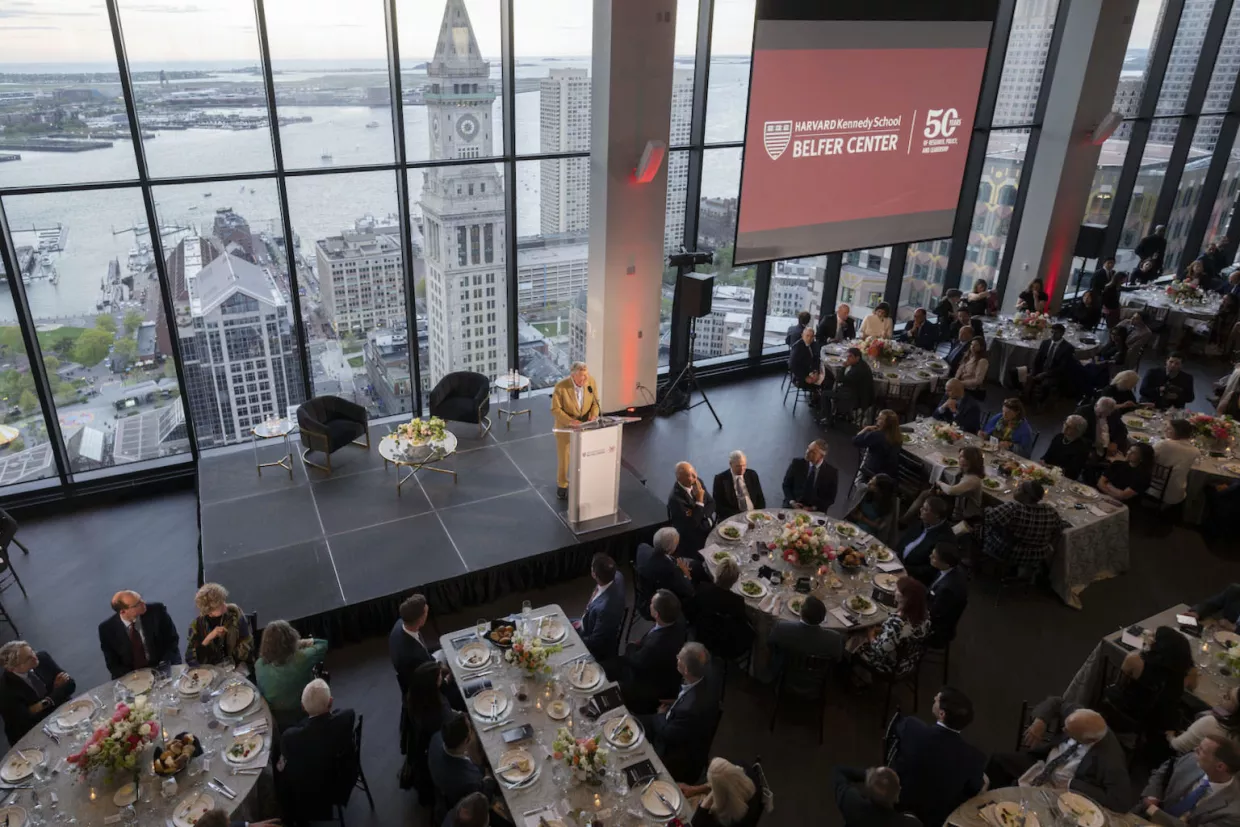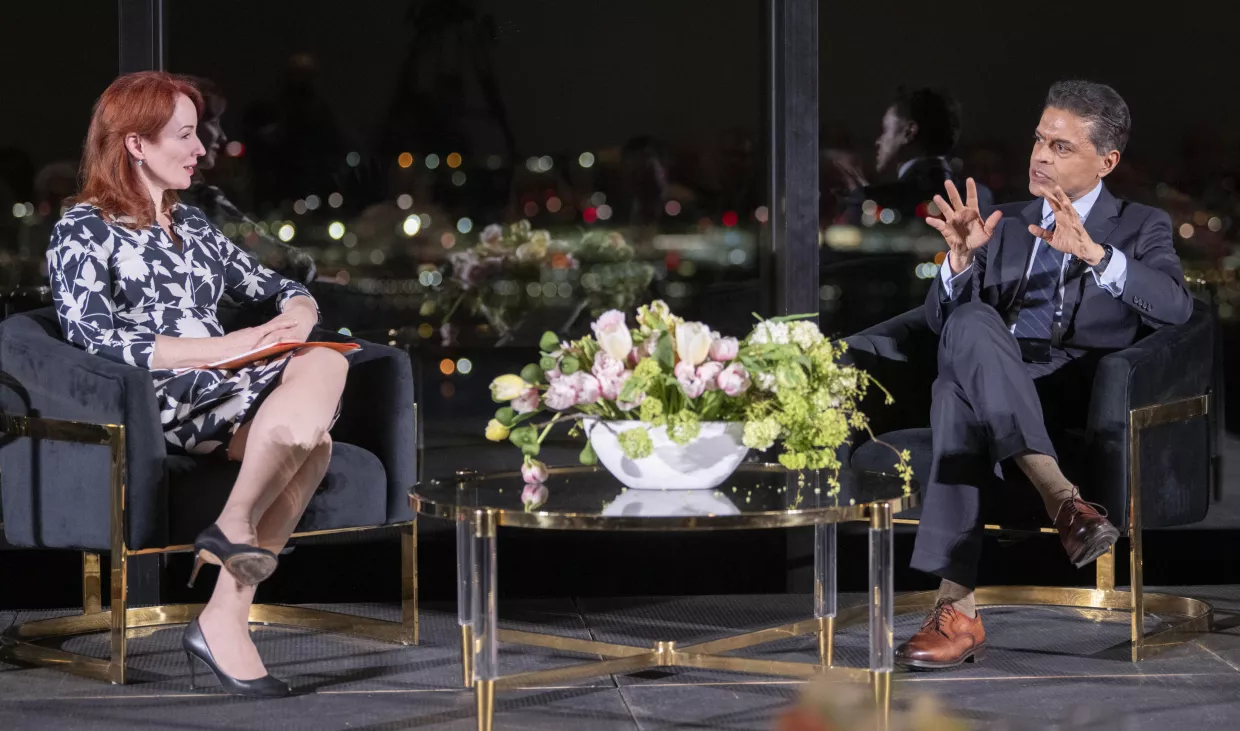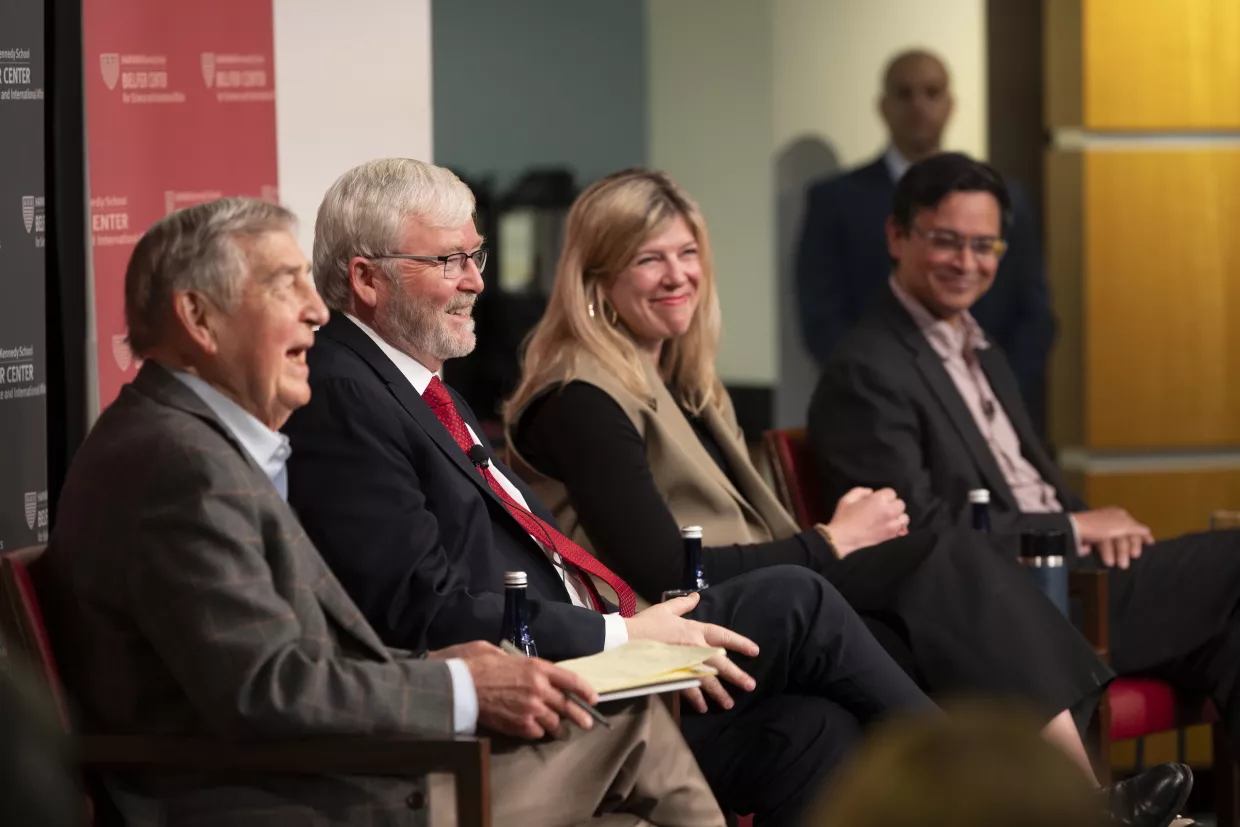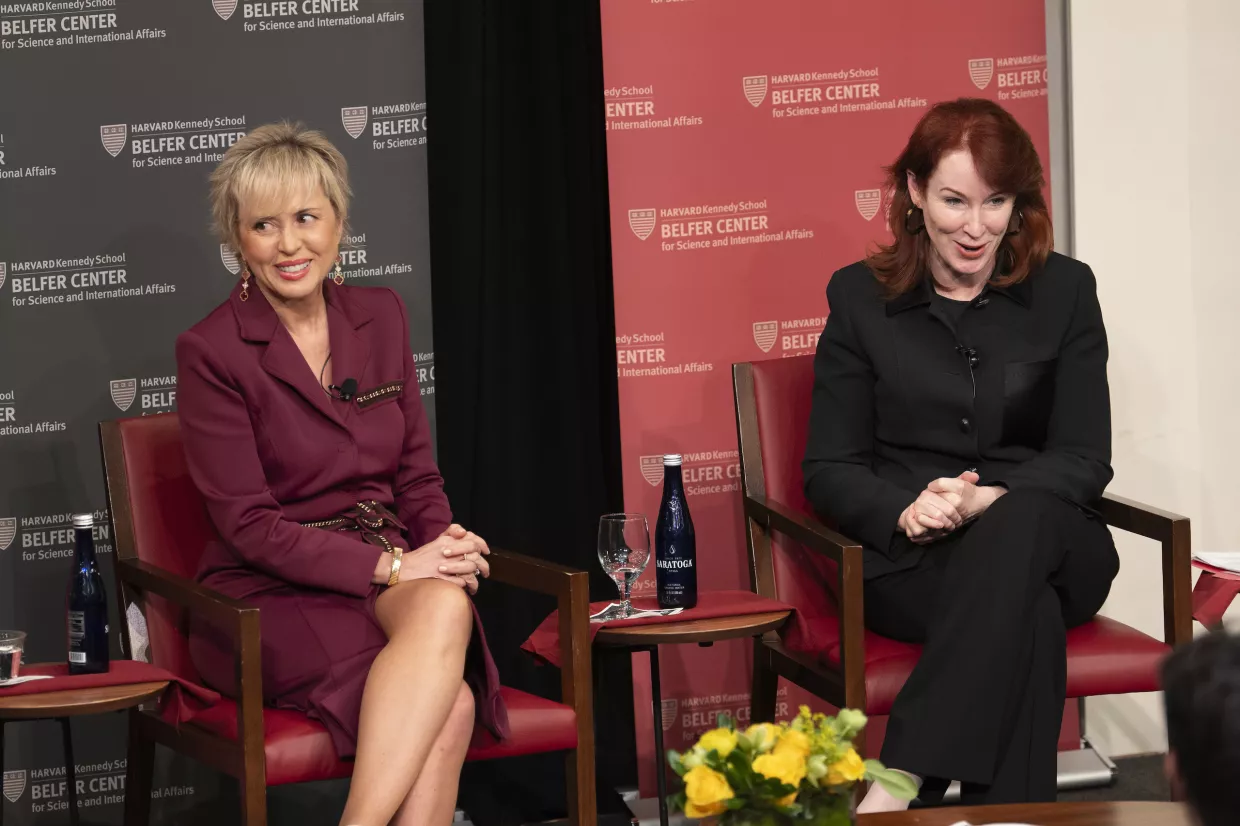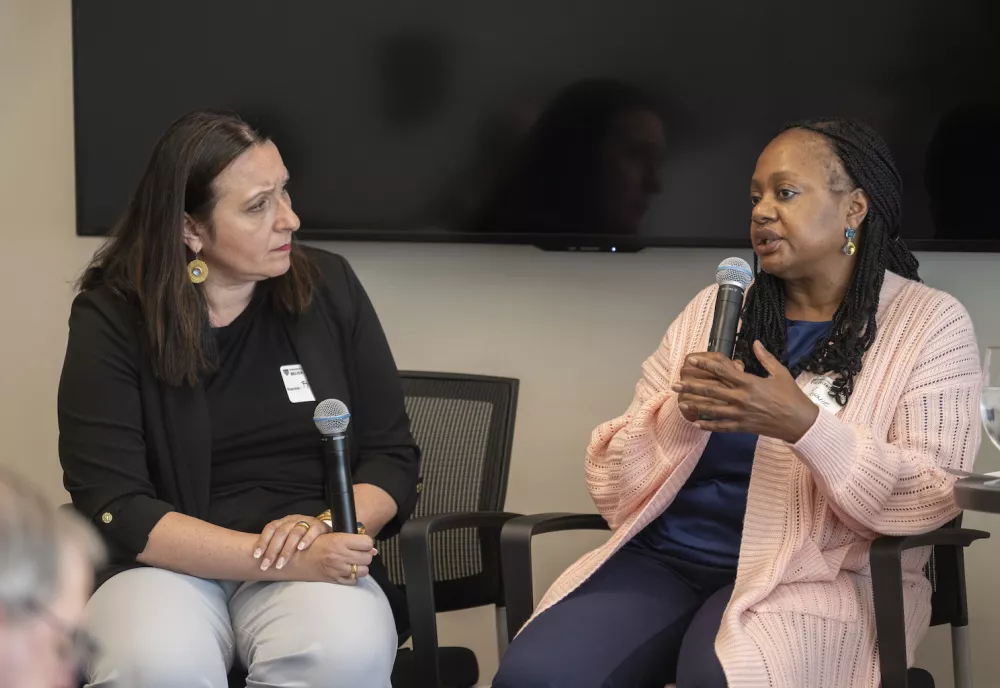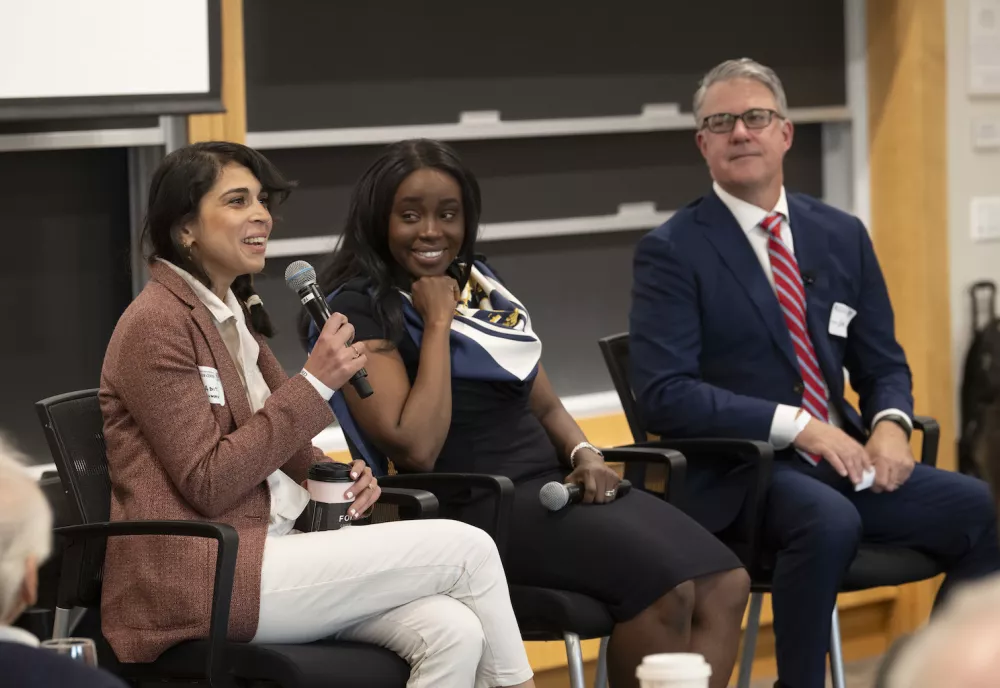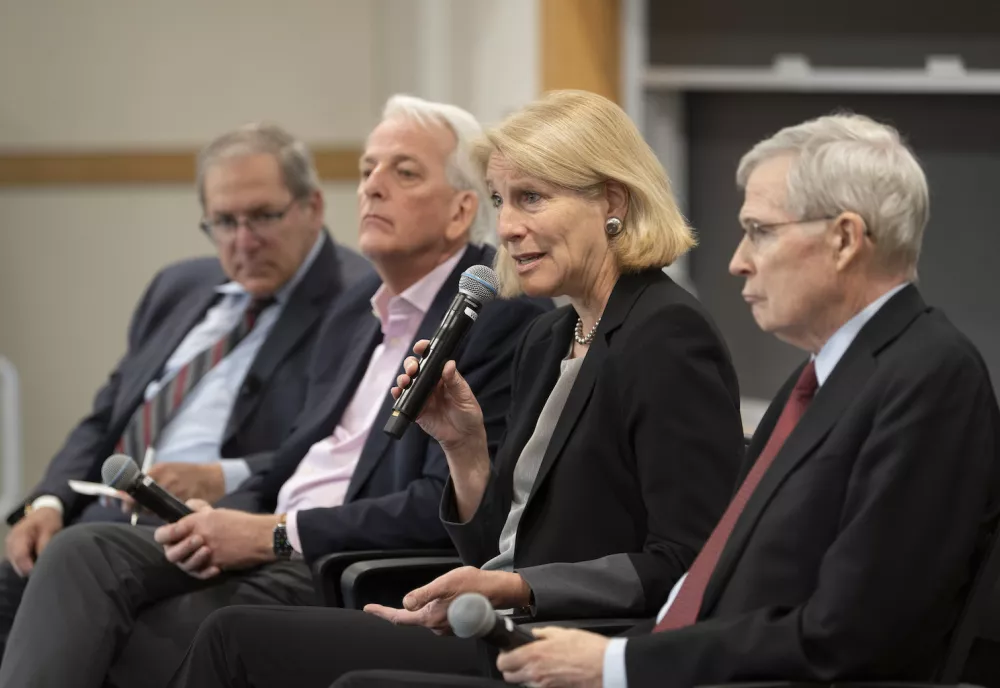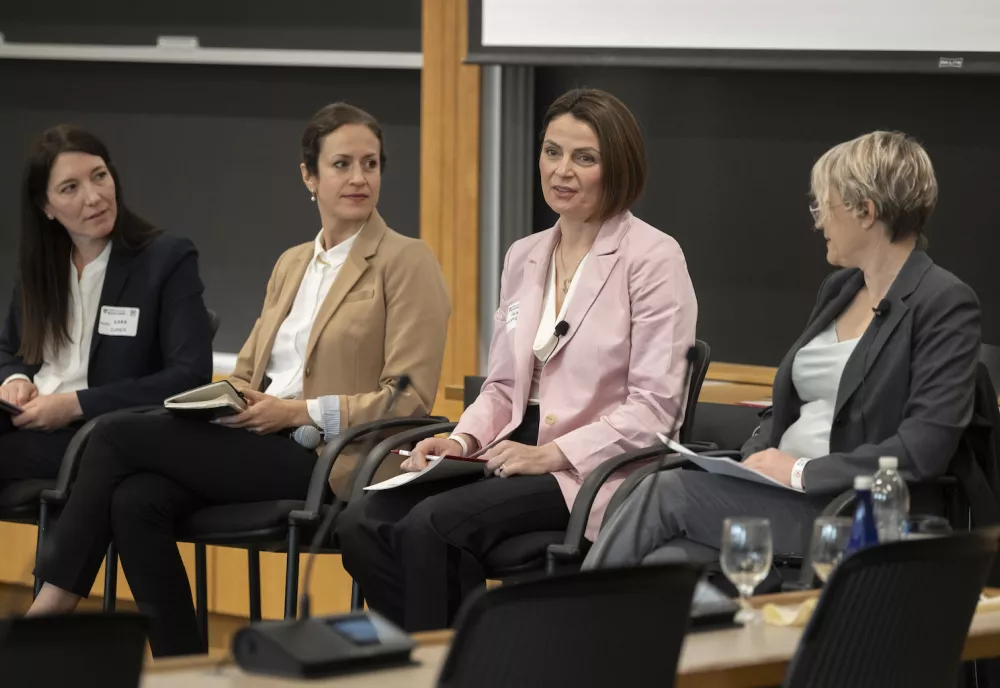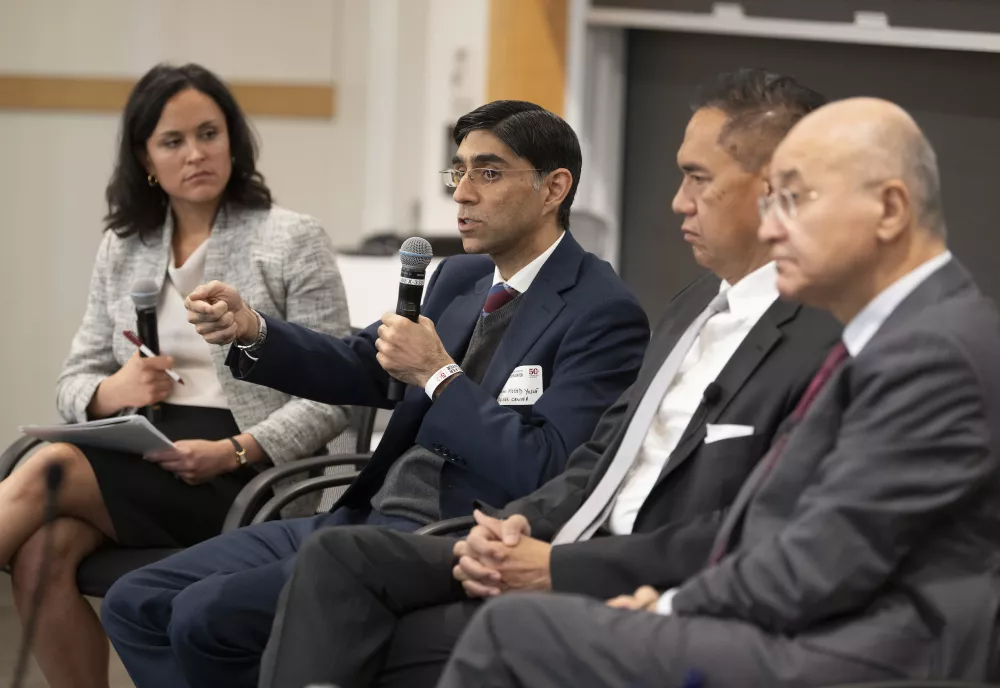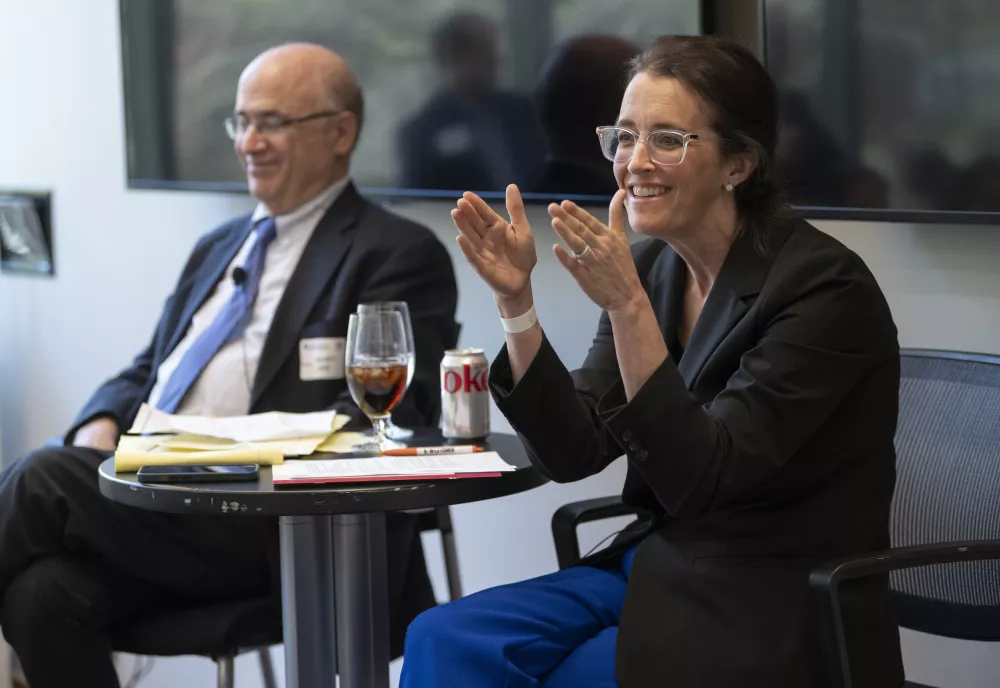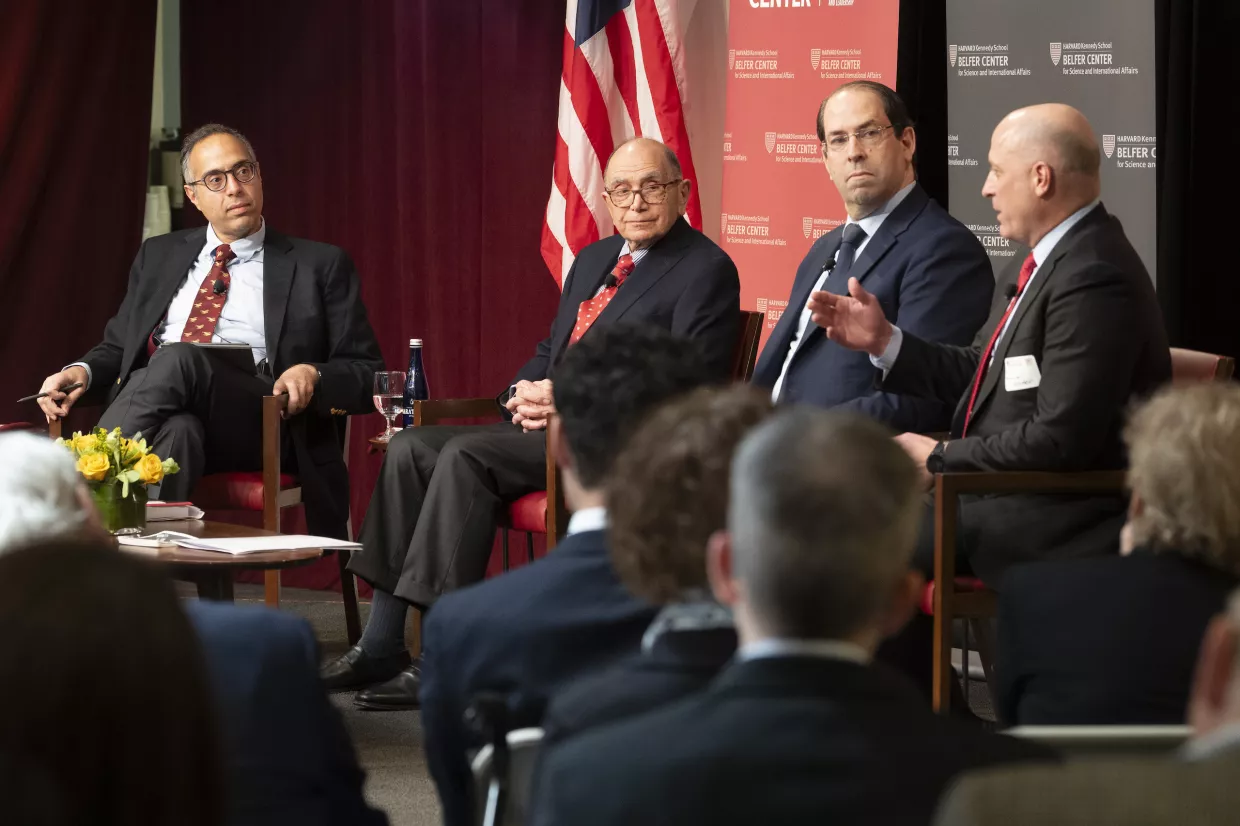"The Belfer Center's founding fathers made seminal contributions over the decades as the U.S. and the Soviet Union engaged in arms control negotiations with agreements like the Nunn-Lugar Cooperative Threat Reduction Program," said Professor Allison recounting some of the Center's most meaningful policy interventions. "This is also a fragile achievement, not to be taken for granted. It requires constant work, actual work that the Belfer Center is continuing to do today."
Laurence Belfer, whose parents Robert and Renée Belfer endowed the Belfer Center in 1997, announced a new gift to ensure generational support for the Center's critical work.
"One of the best ways to help the most people... is by training better public servants," Belfer said on the occasion. "Suffice to say, my family is enormously proud of what has been accomplished over the last 50 years, and we have every hope and every confidence that the best is yet to come."
Professors Stephen Walt and Eric Rosenbach emphasized the pivotal role of individuals in driving the institution forward, underscoring how ideas generated at Belfer translate into tangible impacts on the world. Professor Walt spoke about the International Security Program and the outstanding record of rigorous analysis, challenges to conventional wisdom, and contributions to policy-relevant academic research of its fellowship and academic journal, International Security.
The evening's featured event showcased one such product of the International Security Program: CNN's Fareed Zakaria, a former Belfer International Security Fellow, joined Meghan L. O'Sullivan for a thought-provoking fireside chat.
Reflecting on his history at the Belfer Center, Zakaria noted, "For me to be in an environment with [former Belfer Center Directors] Paul Doty, Joe Nye, and Ash Carter, and for us to be sitting around a table and for me to be able to ask a question or make a comment in a flat hierarchy with them was extraordinary."

